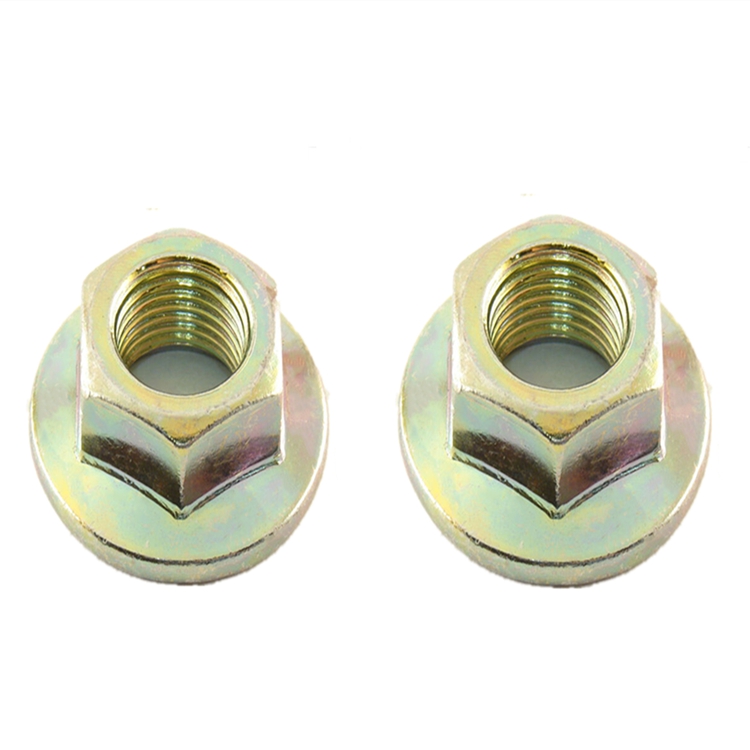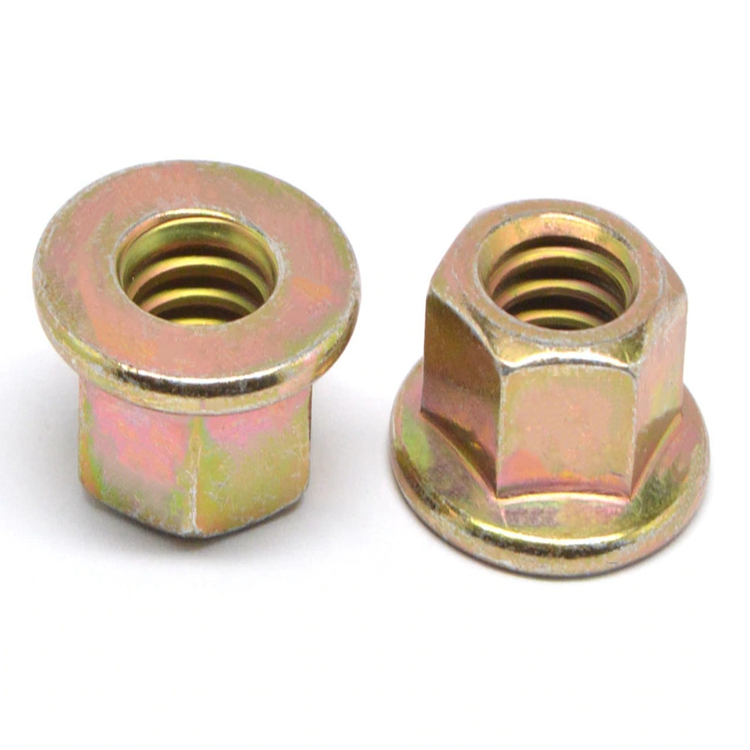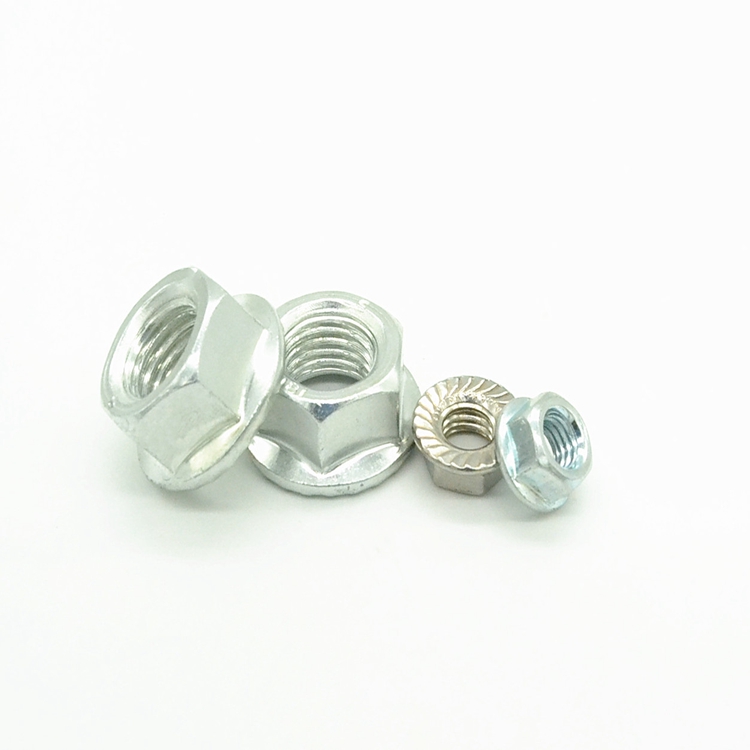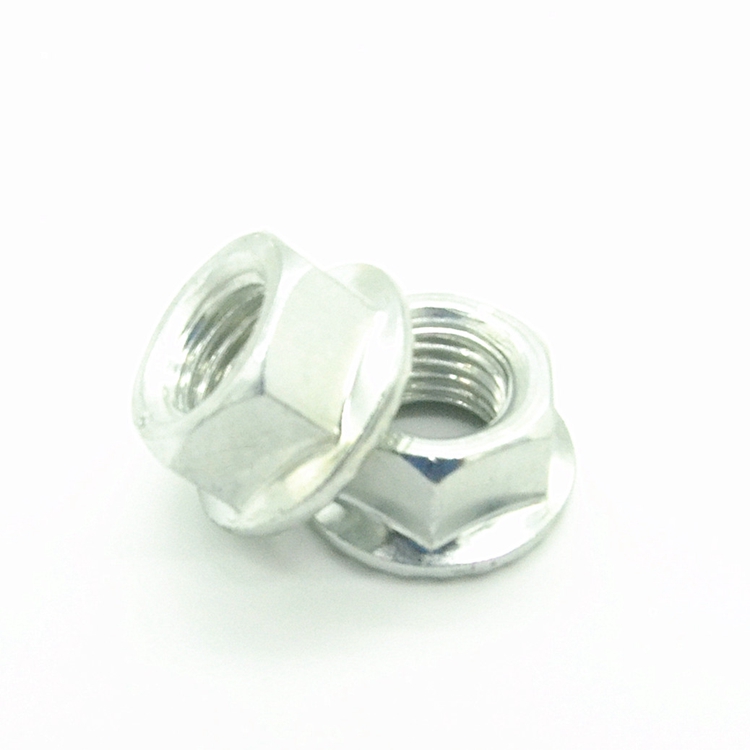Leading Axle Nuts Supplier | High-Quality Fasteners
Sep . 22, 2025 13:25 Back to list
Leading Axle Nuts Supplier | High-Quality Fasteners
Strategic Sourcing: The Indispensable Role of an Axle Nuts Supplier
In the intricate world of B2B manufacturing and heavy engineering, the integrity of a machine often hinges on its smallest components. Among these, axle nuts play a critical, often understated, role in ensuring the safe and efficient operation of countless mechanical systems. From automotive assemblies to colossal industrial machinery, the demands on these fasteners—load bearing capacity, vibration resistance, and durability—are immense. Selecting a competent axle nuts supplier is not merely a procurement decision; it is a strategic investment in product reliability and operational longevity.
Industry Trends Shaping the Fastener Landscape
- Advanced Material Science: The industry is witnessing a significant shift towards high-strength, lightweight alloys (e.g., advanced high-strength steels, titanium alloys) and specialized superalloys for extreme temperature or corrosive environments. This enhances performance while reducing overall system weight, critical for sectors like aerospace and electric vehicles.
- Sophisticated Coating Technologies: Beyond traditional galvanizing, innovative coatings like dacromet, geomet, zinc-nickel, and PTFE are gaining traction. These offer superior corrosion resistance, reduced friction coefficients, and extended service life, directly impacting fastener longevity in harsh conditions.
- Precision Manufacturing & Smart Fasteners: The demand for tighter tolerances and consistent quality is driving investments in advanced CNC machining, automated inspection, and digital twin technologies. The emerging concept of "smart fasteners" with integrated sensors for real-time tension monitoring represents the cutting edge, offering predictive maintenance capabilities.
- Sustainability and Traceability: Environmental regulations and corporate social responsibility initiatives are pushing for more sustainable manufacturing processes, reduced waste, and full traceability of materials from origin to final product. This requires robust supply chain management from all leading axle nuts manufacturers.
These trends underscore the evolving complexity and criticality of fastener selection. A reliable partner among axle nuts companies must stay abreast of these innovations to deliver products that meet contemporary engineering challenges and future demands.
The Precision Art of Axle Nut Manufacturing: A Detailed Process Flow
The production of high-performance axle nuts is a multi-stage process demanding meticulous control and specialized expertise. It begins with the selection of premium materials and culminates in rigorous quality assurance, ensuring each fastener meets stringent performance criteria.
Key Materials and Their Properties
- High-Grade Carbon Steel: Commonly used materials like 45# (SAE 1045) for general-purpose, and 40Cr (SAE 5140) for enhanced strength and hardenability, offering good tensile and yield properties.
- Alloy Steel: For applications requiring superior strength and fatigue resistance, grades such as 35CrMo (SAE 4135) and 42CrMo (SAE 4140) are preferred. These provide excellent toughness and wear resistance after heat treatment.
- Stainless Steel: Grades like 304 (A2) and 316 (A4) are chosen for their exceptional corrosion resistance, particularly in petrochemical, marine, and food processing environments, though with lower mechanical strength than heat-treated alloy steels.
Manufacturing Process Steps
- Material Preparation: Raw material bars are procured, inspected for metallurgical consistency, and cut to precise lengths using automated saws.
- Forming (Forging or Cold Heading):
- Hot Forging: For larger axle nuts or those requiring specific grain orientation for increased strength, bars are heated and formed under immense pressure.
- Cold Heading: Smaller diameter nuts are often formed at room temperature, which improves mechanical properties by work hardening the material and maintaining tight tolerances.
- Annealing: Post-forming, parts undergo annealing to relieve internal stresses, improve machinability, and refine grain structure, preventing cracking during subsequent processes.
- CNC Machining: Precision lathes and machining centers create critical features such as threads (e.g., ISO metric coarse/fine, ANSI UNC/UNF), chamfers, and specific flange geometries. This ensures dimensional accuracy and optimal thread engagement.
- Heat Treatment: A crucial step involving controlled heating and cooling cycles (hardening, quenching, tempering) to achieve the desired mechanical properties, including tensile strength, yield strength, and hardness, specified by standards like ISO 898-2.
- Surface Treatment: To enhance corrosion resistance and appearance, various coatings are applied:
- Galvanizing (Hot-dip or Electro): Provides a sacrificial zinc layer.
- Phosphating: Offers good corrosion resistance and acts as a base for paints.
- Dacromet/Geomet: Non-electrolytic, inorganic coatings offering excellent corrosion and chemical resistance, free from hydrogen embrittlement.
- PTFE Coating: Provides superior chemical resistance and a low friction coefficient.
- Quality Control & Testing: Throughout the process, and especially at the final stage, rigorous testing ensures adherence to standards. This includes:
- Dimensional Inspection: Using calipers, micrometers, and optical comparators to verify adherence to CAD specifications.
- Thread Gauging: Go/No-Go gauges ensure thread accuracy and fit.
- Hardness Testing: Rockwell or Vickers tests.
- Tensile & Proof Load Testing: Verifies strength and resistance to plastic deformation per standards like ISO 898-2 (for property class 8, 10, 12 nuts).
- Fatigue Testing: For critical applications, cyclic loading tests assess long-term durability.
- Corrosion Resistance Testing: Salt spray tests (ASTM B117) to evaluate coating performance.
- Non-Destructive Testing (NDT): Magnetic particle inspection for surface cracks.
- Packaging and Dispatch: Finished nuts are carefully packaged to prevent damage during transit, often with protective coatings or specialized packaging for export.

Image 1: Precision CNC machining for axle nuts, ensuring dimensional accuracy and surface finish.
Service Life and Target Industries
The designed service life of axle nuts can range from several years to decades, depending on material, coating, and application stress. Target industries demanding such high-quality fasteners include:
- Automotive & Heavy Machinery: Drivetrain, suspension, and wheel hub assemblies, where vibration resistance and high torque capacity are paramount.
- Railroad: Fastening systems for bogies, wheels, and track components.
- Wind Energy: Securing tower sections, nacelle components, and blade pitch systems, requiring extreme durability against fatigue and corrosion.
- Petrochemical & Metallurgy: Flange connections and structural supports in harsh, corrosive, and high-temperature environments.
- Water Supply & Drainage: Pipeline connections where robust, corrosion-resistant fasteners are essential for long-term infrastructure integrity.
Advantages in Typical Application Scenarios
- Energy Saving: In dynamic applications, precise manufacturing and appropriate coatings can reduce friction in the bolted joint, leading to more efficient power transmission and less energy loss.
- Corrosion Resistance: Advanced coatings like Dacromet or PTFE extend component life significantly in saline or chemically aggressive environments, drastically reducing maintenance and replacement costs.
- Enhanced Safety & Reliability: High-tensile axle nuts with anti-vibration features prevent loosening under dynamic loads, crucial for safety-critical components in automotive and aerospace applications.
- Extended Maintenance Cycles: Superior durability translates to longer intervals between inspections and replacements, directly reducing operational downtime and labor costs for end-users.
Technical Specifications and Data Visualization for Axle Nuts
Understanding the detailed technical specifications of axle nuts is paramount for engineers and procurement specialists. These parameters dictate performance, compatibility, and suitability for specific applications. A reputable axle nuts supplier provides comprehensive data to ensure optimal selection.
Typical Axle Nut Specifications
The following table outlines key parameters for axle nuts, reflecting common industrial standards and requirements. These values are critical for designing robust and reliable bolted joints.
| Parameter | Property Class 8 (Medium Strength) | Property Class 10 (High Strength) | Property Class 12 (Very High Strength) | Stainless Steel A4-70 (Corrosion Resistant) |
|---|---|---|---|---|
| Material Grade (Equivalent) | Carbon Steel (e.g., SAE 1045) | Alloy Steel (e.g., SAE 4135) | Alloy Steel (e.g., SAE 4140) | Stainless Steel (316) |
| Proof Load Stress (MPa) | 800 | 1000 | 1200 | 450 |
| Minimum Ultimate Tensile Strength (MPa) | 830 | 1040 | 1240 | 700 |
| Hardness (HV) | 190-302 | 272-353 | 320-370 | 220 max |
| Typical Operating Temperature (°C) | -50 to 200 | -50 to 250 | -50 to 300 | -200 to 450 |
| Standard Compliance | ISO 898-2, DIN 980 | ISO 898-2, DIN 6927 | ISO 898-2, ASTM A563 | ISO 3506-2 |
| Common Coatings | Zinc Plated, Phosphated | Dacromet, Geomet, Zinc-Nickel | Dacromet, Geomet, Zinc-Nickel | Passivated, PTFE |
Expertise Highlight: Proof load is a critical performance parameter representing the maximum force a nut can withstand without permanent deformation, ensuring that the fastener will recover its original shape once the load is removed. Understanding this prevents over-tightening and material failure, a key consideration for high-stress applications. The torque-tension relationship, influenced by friction under the nut face and in the threads, is also vital for achieving desired preload without inducing excessive stress, further highlighting the need for precision manufacturing from expert axle nuts suppliers.
Application Scenarios and Technical Advantages of High-Performance Axle Nuts
The versatility and robustness of axle nuts make them indispensable across a multitude of demanding industries. Their technical advantages translate directly into enhanced performance, reliability, and cost-efficiency for critical systems.
Key Application Sectors:
- Automotive & Commercial Vehicles: Essential in wheel hub assemblies, steering linkages, suspension components, and drivetrain systems. Their ability to maintain preload under constant vibration and dynamic loads is crucial for vehicle safety and performance.
- Heavy Construction & Mining Equipment: Used in track systems, hydraulic cylinder mounts, articulate joints, and large structural connections. These environments expose fasteners to extreme shock loads, abrasive conditions, and temperature fluctuations.
- Agricultural Machinery: Employed in axles, tillage equipment, and power take-off (PTO) drive systems, where reliability is critical during long hours of operation in varied terrains and weather.
- Railroad Industry: Vital for securing wheelsets to axles, bogie assemblies, and track fastening systems, requiring resistance to extreme cyclic loading and environmental degradation.
- Wind Energy Turbines: Utilized in connecting tower sections, securing gearbox mounts, and blade pitch mechanisms. These applications demand exceptional fatigue resistance and corrosion protection over a 20+ year lifespan.
- Industrial Machinery: General-purpose heavy machinery, presses, and material handling equipment, where robust fastening is needed for structural integrity and operational safety.

Image 2: Axle nuts integrated into a heavy machinery drivetrain assembly.
Technical Advantages:
- Superior Vibration Resistance: Many axle nuts feature specific locking mechanisms (e.g., prevailing torque type, castellated with cotter pins, or specialized anti-vibration coatings) designed to prevent loosening under severe dynamic loads and continuous vibration, which is crucial in sectors like automotive and heavy machinery.
- High Load Bearing Capacity: Engineered from high-strength steels and heat-treated to exacting standards, axle nuts are designed to withstand significant static and dynamic axial loads, ensuring structural integrity in high-stress applications.
- Exceptional Corrosion and Chemical Resistance: Utilizing advanced surface treatments like zinc-nickel, Dacromet, or PTFE coatings, axle nuts can operate reliably in highly corrosive environments, including marine, chemical processing, and outdoor industrial settings, vastly extending their lifespan.
- Extended Service Life & Reduced Maintenance: The combination of high-grade materials, precision manufacturing, and robust coatings results in fasteners with significantly longer operational lifespans. This directly translates to reduced downtime, lower replacement costs, and fewer maintenance interventions over the equipment's lifecycle.
- Temperature Stability: Specialized alloys and coatings allow axle nuts to maintain their mechanical properties and structural integrity across a broad range of operational temperatures, from cryogenic to high-heat applications.
- Optimized Torque-Tension Performance: Manufacturers can provide nuts engineered for specific torque-tension relationships, critical for achieving desired preload in bolted joints and ensuring optimal performance without overstressing components.
Vendor Comparison: Selecting the Optimal Axle Nuts Supplier
Choosing the right axle nuts supplier is a decision that impacts not just cost, but also product quality, project timelines, and overall operational risk. A thorough vendor comparison goes beyond mere price, evaluating critical factors that ensure long-term value and reliability.
Key Considerations for Supplier Selection:
| Criterion | Description & Impact on Value |
|---|---|
| Manufacturing Capabilities | Assess in-house forging, CNC machining, heat treatment, and surface finishing. A supplier with comprehensive capabilities offers greater control over quality, consistency, and customization. This ensures precise adherence to technical drawings and standards. |
| Quality Certifications | Look for ISO 9001, IATF 16949 (for automotive), AS9100 (aerospace), and CE marking. These certifications demonstrate a commitment to stringent quality management systems and adherence to international standards, providing assurance of product reliability. |
| Customization Flexibility | Ability to produce non-standard sizes, specialized materials, unique thread forms, or bespoke coatings. This is crucial for niche applications or where off-the-shelf solutions are inadequate, minimizing design compromises. |
| Lead Times & Logistics | Evaluate typical lead times, capacity for expedited orders, and robust global logistics network. Timely delivery and efficient supply chain management prevent project delays and associated costs. |
| Technical Support & R&D | Access to expert engineering support for design optimization, material selection, and application troubleshooting. A supplier investing in R&D is likely to offer innovative and superior solutions. |
| Testing & Quality Assurance | In-house metallurgical lab, mechanical testing (tensile, proof load, hardness, fatigue), and comprehensive inspection processes (dimensional, NDT). Verifiable test data enhances confidence in product performance. |
| Cost-Effectiveness & Value | Beyond unit price, consider total cost of ownership (TCO), including longevity, reduced maintenance, and avoidance of failure costs. A higher-quality product from an experienced axle nuts factory can often be more economical in the long run. |
A comprehensive evaluation of these criteria is essential for establishing a long-term, trustworthy partnership with an axle nuts exporter capable of consistently meeting demanding B2B requirements.
Customized Solutions and Real-World Application Case Studies
While standard axle nuts serve many purposes, specialized applications often require bespoke solutions. A truly valuable axle nuts supplier excels in providing tailored fasteners that address unique engineering challenges, demonstrating their expertise through successful application case studies.
The Power of Customization:
Customized axle nuts can involve modifications to material composition, heat treatment protocols, thread profiles, flange designs, and advanced coating systems. This allows for:
- Optimized Performance: Precisely matching the fastener's properties to the exact load, vibration, and environmental conditions of the application.
- Problem Solving: Addressing issues like hydrogen embrittlement, galling, corrosion fatigue, or premature loosening in existing designs.
- Cost Efficiency: While initial cost might be higher, a custom solution often provides superior longevity and reduces total lifecycle costs by preventing failures and reducing maintenance.
- Integration: Seamless fit with complex assemblies, avoiding design compromises often necessitated by off-the-shelf components.

Image 3: Diverse range of specialized axle nuts for various industrial applications.
Application Case Studies:
Case Study 1: High-Performance Axle Nuts for Offshore Wind Turbines
Challenge: A leading wind turbine manufacturer faced premature fastener failure in the nacelle's gearbox mounting system for offshore platforms. The original fasteners, standard Class 10.9, succumbed to a combination of high cyclic loads, continuous vibration, and extreme marine corrosion within two years, necessitating costly and hazardous repairs.
Solution: Collaborating with our engineering team, the customer received a customized axle nut solution. The design involved a 12.9 property class alloy steel for enhanced fatigue strength, combined with a specialized multi-layer Dacromet coating system for superior corrosion resistance (exceeding 1,500 hours in salt spray testing, compared to 200 hours for previous fasteners). Additionally, an integral prevailing torque feature was incorporated to combat vibration-induced loosening.
Results: The customized axle nuts demonstrated a projected service life of over 15 years, a seven-fold improvement. This significantly reduced maintenance costs by 60% over the turbine's operational life and drastically improved safety by minimizing the need for offshore repair crews. The reliability enhancement allowed the client to offer extended warranties, strengthening their market position.
Case Study 2: Optimized Axle Nuts for Heavy-Duty Agricultural Equipment
Challenge: A manufacturer of large agricultural tractors experienced frequent loosening of axle nuts on their rear drive assemblies. The constant shock loads and vibrations encountered in harsh farming environments led to reduced clamping force, accelerated wear, and potential component damage.
Solution: We proposed a custom flange nut design with an integrated non-metallic patch (e.g., nylon) on the threads. This self-locking feature provided consistent prevailing torque, significantly increasing resistance to vibration-induced loosening. The nuts were manufactured from high-tensile 42CrMo steel with a black oxide finish to prevent superficial corrosion.
Results: Post-implementation, the client reported a 95% reduction in unplanned maintenance related to loose axle nuts. The improved joint integrity led to a 15% increase in component service life for the affected assemblies and a marked improvement in overall equipment reliability, enhancing customer satisfaction and reducing warranty claims.
Ensuring Excellence: , Service Commitments & Customer Support
In the B2B sector, the reputation of an axle nuts company is built on unwavering commitment to Expertise, Experience, Authoritativeness, and Trustworthiness (). This extends from product quality to comprehensive customer service.
Authoritativeness and Expertise:
- Certifications and Compliance: Our manufacturing facilities are ISO 9001:2015 certified for quality management and IATF 16949 compliant for automotive sector specifics. Products adhere to international standards such as ISO, DIN, ANSI, JIS, and ASME, with CE marking available where applicable.
- Industry Partnerships: We proudly partner with leading OEMs and Tier 1 suppliers across automotive, heavy machinery, and renewable energy sectors, a testament to our consistent quality and reliable delivery.
- Decades of Experience: With over two decades of specialized experience as axle nuts factories, our team possesses deep metallurgical and engineering knowledge, enabling us to tackle the most complex fastening challenges.
- Rigorous Testing and Data: Every batch undergoes extensive in-house testing, including spectrum analysis, mechanical property evaluation (tensile strength, proof load, hardness), dimensional checks, and corrosion resistance testing (e.g., salt spray per ASTM B117). Detailed test reports and material certificates are provided with each order, ensuring full traceability and verified performance.
Trustworthiness & Service Commitments:
Frequently Asked Questions (FAQ):
- Q1: What materials are available for your axle nuts?
- A: We offer a wide range of materials, including various grades of carbon steel (e.g., 45#, 40Cr), alloy steel (e.g., 35CrMo, 42CrMo), and stainless steel (e.g., 304, 316). We also source exotic alloys for highly specialized applications.
- Q2: Can you provide custom sizes or designs for axle nuts?
- A: Absolutely. Customization is a core strength. We work closely with clients from design to production for unique dimensions, thread types, locking features, and specialized coatings to meet precise application requirements.
- Q3: What testing procedures do your axle nuts undergo?
- A: Our products undergo rigorous testing, including chemical composition analysis, mechanical testing (tensile, yield, proof load, hardness), dimensional inspection, thread gauging, non-destructive testing, and corrosion resistance testing (salt spray). All tests conform to relevant international standards.
- Q4: What are your typical lead times for standard and custom orders?
- A: Standard product lead times are typically 4-6 weeks. Custom orders, depending on complexity and material sourcing, usually range from 8-12 weeks. Expedited options are available for urgent requirements, please contact our sales team for specifics.
Lead Time & Fulfillment:
We maintain an optimized production schedule and robust supply chain to ensure efficient order fulfillment. Our logistics team manages global shipping, offering various options (sea freight, air freight, express courier) to meet project deadlines and budget requirements. We also offer inventory management solutions for high-volume clients.
Warranty Commitments:
We stand behind the quality of our products with a standard 1-year limited warranty against manufacturing defects and material non-conformities from the date of shipment. Our commitment is to ensure the supplied axle nuts meet or exceed agreed-upon specifications and performance criteria.
Comprehensive Customer Support:
Our dedicated customer support team and technical engineers are available to provide expert consultation, from initial product selection and design optimization to after-sales support. We offer rapid response times for inquiries, technical assistance, and any post-delivery concerns. Your project's success is our priority.

Image 4: Quality assurance and meticulous inspection of fastener products.
References
- ISO 898-2: Mechanical properties of fasteners made of carbon steel and alloy steel — Part 2: Nuts with specified proof load values — Coarse thread and fine pitch thread. International Organization for Standardization.
- SAE J995: Mechanical and Material Requirements for Steel Nuts. SAE International.
- ASTM A563: Standard Specification for Carbon and Alloy Steel Nuts. ASTM International.
- ASM Handbook, Volume 1: Properties and Selection: Irons, Steels, and High-Performance Alloys. ASM International.
- G. H. Junker. An Investigation of the Loosening of Bolted Joints Under Vibration. SAE Transactions, Vol. 78, 1969.
Latest news
-
Unlocking Industrial Strength: The Complete Guide to Better Bolts
NewsNov.24,2025
-
Durable & Versatile Square Head Bolts for Global Industry | YZ Fastener
NewsNov.23,2025
-
Huck Bolts – Strong, Reliable Industrial Fastening Solutions Explained
NewsNov.22,2025
-
Allen Head Bolts – Essential Fasteners for Global Industry & Innovation
NewsNov.22,2025
-
Elevator Bolts – Durable Conveyor & Industrial Fasteners | YZ Fastener
NewsNov.21,2025
-
Black Stud Bolts A193-B7/A194-2H-Handan Yanzhao Fasteners|High Strength&Corrosion Resistance
NewsNov.21,2025
